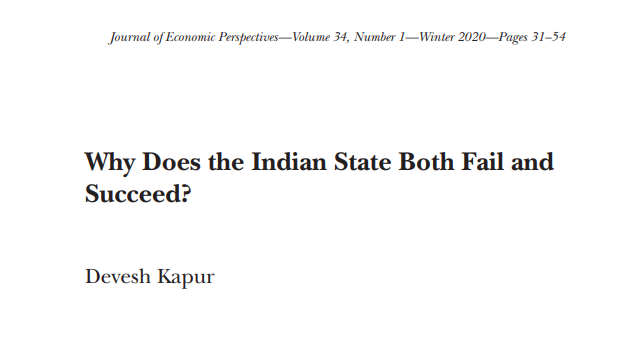#Staffpicks: We share IDFC Institute staff’s favourite Indian newsletters for your weekend reading pleasure. Listed below are the newsletter link with an excerpt of its self-description. (1/n)
“The Nutgraf is a 10-min newsletter sent at 10 AM IST every Saturday. It connects the dots and synthesizes one big event in business, technology and finance that happened over the week in India.” the-ken.com/the-nutgraf/ (2/n)
@TheKenWeb
@TheKenWeb
“This thought-letter is about frameworks, mental models, and key ideas that will hopefully help you think about any public policy problem in imaginative ways.” publicpolicy.substack.com (3/n)
@pranaykotas
@pranaykotas
“The Parallel Campaign is a fortnightly newsletter that questions the traditional orthodoxies presented in Indian schools’ history curricula.” theparallelcampaign.substack.com (4/n)
@thellcampaign
@thellcampaign
“We wade through all the clunky newspaper copy and all the shouty debates to bring you analysis, headlines and links to the best pieces from all over.” thepoliticalfix.substack.com (5/n)
@RohanV @scroll_in
@RohanV @scroll_in
“We think that women reporting the news in their language, from their perspective, from our small towns and villages, can be the heart of a revolution. ” khabarlahariya.org/signup/ (6/n)
@KhabarLahariya
@KhabarLahariya
"Stop Press: A weekly newsletter by Chitranshu Tewari to help you track the news media ecosystem and make sense of it." newslaundry.com/newsletter-sig… (7/n)
@chitranshu09 @newslaundry
@chitranshu09 @newslaundry
“To make sense of life and times under COVID-19, I decided to track the fundamental disruptions on the global economy. Follow this blog to get sharp and succinct insights, coupled with fun memes” evolvingeconomy.substack.com (8/n)
@romitme
@romitme
“I will write about India, economics, politics, sports, philosophy, liberty — and about writing itself." indiauncut.substack.com/about (9/n)
@amitvarma
@amitvarma
Tell us your newsletter recommendations in the comments! Happy reading! (n/n)
• • •
Missing some Tweet in this thread? You can try to
force a refresh








